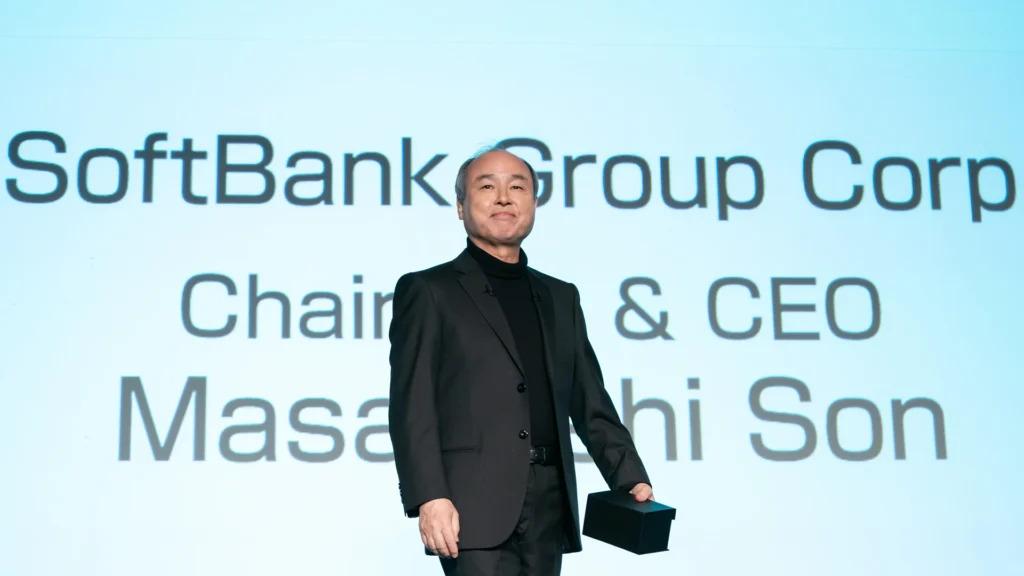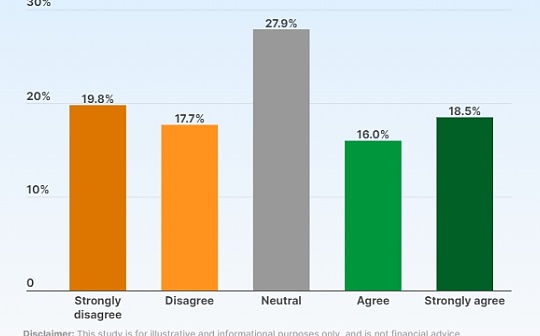Masayoshi Son plans to join forces with stablecoin giant Tether to build a $3 billion crypto joint venture, and the Bitcoin hoarding strategy has entered the 2.0 era?

Reprinted from panewslab
04/23/2025·24D
Author: Weilin, PANews
"Investment Madman" Masayoshi Son also has to place a heavy bet in the crypto industry after he has invested heavily in AI. Like the AI layout, SoftBank Group, which he runs, may establish a crypto joint venture with a US official partnership with Cantor Fitzgerald, a traditional financial services company, and join forces with Tether, the largest stablecoin issuer, to establish a crypto joint venture with a total scale of up to $3 billion.
The joint venture is seen as a replay of the variant of Strategy's "Bitcoin Financial Strategy" under Michael Saylor. After U.S. Commerce Secretary Howard Lutnick stepped down as chairman and CEO of Cantor, his son Brandon Lutnick now leads the company.
Tether invests $1.5 billion in Bitcoin, which may open the 2.0 era of
"Bitcoin Financial Strategy"
The joint venture comes in the form of a special purpose acquisition company (SPAC) called Cantor Equity Partners. In January, the SPAC raised $200 million in initial funding and plans to set up a new company, "21 Capital," through the entity, to absorb and manage billions of dollars in Bitcoin assets. Partners participating in this partnership will convert them into 21 Capital shares at a valuation of $85,000 per Bitcoin at a price of $10 per share.
According to reports, Tether will provide $1.5 billion worth of Bitcoin as a fund, while its affiliated exchanges Bitfinex and SoftBank Group will invest $600 million and $900 million in Bitcoin, respectively. The deal is expected to be officially announced in the coming weeks, although there is still a possibility of miscarriage.
This SPAC is seen by the market as a replay of Strategy's "bitcoin financial strategy". Strategy was originally an enterprise software provider and has transformed into a core advocate of "digital gold" through continuous purchase of Bitcoin assets in recent years. As of 12:00 on April 23, its Bitcoin holdings were 538,200 pieces, with a market value of more than US$50.1 billion. Its radical financial strategy has inspired the birth of multiple imitators around the world, such as Metaplanet Inc. in Japan. Their purchases usually raise funds through the issuance of stocks and other financial instruments, including convertible notes.
Today, Cantor, Tether and SoftBank are trying to expand similar ideas to more structural investment tools, or to absorb more funds into the Bitcoin market through new acquisition platforms.
At the same time, in recent years, Tether, as the issuer of the world's largest stablecoin USDT, has actively promoted its diversified investment strategy. Over the past year, the company has made frequent moves in agriculture, AI, and even brain-computer interfaces.
What is the transfer of the deep binding between Tether and Cantor and
the political and business?
Tether and Cantor are increasingly closely related. Cantor not only holds convertible bonds issued by Tether, but also assists in managing Tether's Treasury reserves of more than $80 billion, which part of the assets provide value anchors for USDT stablecoins with a market value of up to $142 billion. The asset management arrangement brings tens of millions of dollars in revenue to Cantor each year. In 2023, Cantor acquired a 5% stake in Tether through convertible debt investment, worth approximately $600 million.
Cantor Fitzgerald's former CEO Howard Lutnick was appointed Secretary of Commerce in the Trump administration in February 2025, officially stepping down from the company and moving into politics. Behind this personnel change is the inheritance of the power of the Cantor family.
Howard Lutnick led Cantor Fitzgerald for more than 30 years and rebuilt the company after losing 658 employees in the September 11, 2001 terrorist attack. After he was transferred to the Secretary of Commerce, he had to divest his business interests in accordance with the ethical rules of the US government, but his influence was continued through strategic and family mechanisms. The new appointment structure demonstrates Lutnick's intention to maintain his vision through trusted insiders and family members.
Lutnick's son, Brandon Lutnick, 26, was appointed as the chairman of Cantor and became the main promoter of the SPAC project. He facilitated contacts between the two sides before Tether made a $775 million investment in video platform Rumble Inc. The new SPAC is now a move Brandon has tried to put Cantor at the heart of the crypto investment boom, according to the Financial Times.
Howard Lutnick's other son, Kyle Lutnick, was appointed as Cantor Fitzgerald, executive vice chairman of LP. Although Lutnick has divested its stake in Cantor, BGC Group and Newmark Group in accordance with ethical requirements for the U.S. government, critics question whether this has really cut off its influence. Democratic Senator Elizabeth Warren publicly pointed out that the deep connection and support between Lutnick and Tether has raised questions about his judgment and concerns about whether he can put the interests of the American people above his personal financial interests.
Another important layout of Cantor, SoftBank's Bitcoin attempt
Dating back to July 2024, at the Bitcoin 2024 conference in Nashville, Howard Lutnick publicly announced that Cantor Fitzgerald will launch a lending business secured by Bitcoin with funds of up to $2 billion. In his speech, he recalled the impact of the "9/11" incident on himself and the company, and expressed his firm support for the Bitcoin and crypto community.
At the end of the speech, Lutnick added: "The meaning of this story is that we will welcome Bitcoin to officially enter the financing system of the global financial markets, and Cantor Fitzgerald will become your supporter."
This signal is interpreted by the market as a further advancement of traditional financial companies in investing in Bitcoin. Last November, Cantor Fitzgerald was in talks with Tether on its proposed multi-billion-dollar loan plan, according to Bloomberg, citing people familiar with the matter. The plan intends to provide US dollar loans to clients with Bitcoin as collateral.
At the same time, SoftBank, another protagonist in this cooperation, was purchased by the group chairman Masayoshi Son personally in 2017, but he bought at the market high and sold at the low point, with a loss of more than US$130 million.
However, in recent years, SoftBank has re-invested its investment in the field of digital infrastructure. Earlier this year, SoftBank invested $50 million in Cipher Mining to acquire about 10.4 million shares (3%) to support HPC data center development and held exclusive one-month negotiations on the data center space, but the negotiation was never completed.
In general, this cooperation plan with Cantor, Tether and SoftBank is seen as another major bet by SoftBank in the Bitcoin market and uses a structured framework to avoid risks. The three cooperative crypto joint ventures not only have an amazing scale, but also deeply integrate stablecoins, Bitcoin assets, policy forces and institutional custody in their strategic paths.
More importantly, in the context of the Trump administration promoting the "Bitcoin Strategic Reserve" and building a looser crypto-regulatory environment, Cantor, Tether, and SoftBank may be able to form a link with macro policies and open up more ways to learn from traditional finance for the comprehensive embrace of cryptocurrencies.


 jinse
jinse